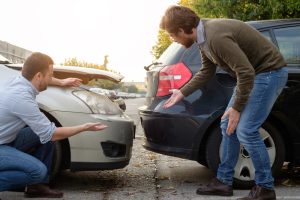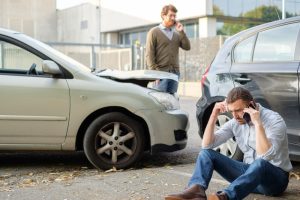Being in a car accident can be one of the most traumatic experiences in a person’s life. Those involved tried to determine who was at fault almost immediately after the impact. The victim in an accident can be 100% fault-free. However, both parties usually share some fault in an accident. You may know it wasn’t entirely your fault, if at all, but how do you prove it? Can you still recover compensation for your injuries and losses? Hach & Rose, LLP has your answers. We can help you measure shared fault in a car accident and determine how much compensation you may recover.
The Importance of Shared Fault

New York courts follow the “pure” comparative negligence rule in determining fault. This means that you can be partially responsible for your accident and recover damages for your injuries. Even if you are 95% responsible for the accident, you could still recover 5% of your losses.
In a few states, the courts use contributory negligence, which means that if a party is even 1% at fault, they cannot recover anything in an accident claim. Because of the harshness of this rule, most places have abandoned it in favor of the comparative negligence rule.
The amount of your compensation depends on the degree of your fault. For instance, suppose the total losses were $100,000. You were found to be 20% at fault in the accident. You would be entitled to recover $80,000 in compensation. The next question is, how can you be at fault for your own accident?
If you have further questions that you need immediate answers to, contact us online, or call Hach & Rose, LLP today.
Determining Fault
In determining fault, insurance adjusters and courts look for things both parties could have done to prevent or avoid the accident. If you are sitting third in line at a stoplight and a drunk driver rear-ends you, there is no doubt that you were not at fault. There is nothing you could have done to avoid that accident.
If it appears that you could have prevented the accident in some way, your fault will be higher. For instance, suppose you were sitting at the stoplight, and you begin moving forward. When the drunk driver came speeding toward the light, they saw a car getting ready to drive into the intersection. Although the drunk driver’s fault is still greater, you may also bear some responsibility.
The more you could have done to prevent being involved in or injured in the accident, the greater your degree of fault will be. If you have more questions, don’t hesitate to contact us today.
Avoiding Shared Fault

You can’t control the actions of other drivers, but you can keep your level of shared fault lower if you are involved in an accident. Some ways to lower the potential of shared fault include:
- Obey all traffic laws — If you are driving at the speed limit, stopping at all signals, and following the rules of the road, it is more difficult to blame you for another driver’s accident.
- Wear your seat belt — This protects you in case of an accident but also prevents the other side from arguing that some of your injuries were preventable if you had worn a seatbelt.
- Keep your vehicle in good repair — Partial fault can be assessed if you have poor brakes, broken lights, or other mechanical problems that prevent you from reacting appropriately in an emergency. If your car is in good condition, your fault will be less.
- Avoid distractions — Never text or use a cell phone when driving. Try to avoid other distractions like eating or adjusting your GPS device.
Everything you can do to be a safe, responsible driver will lessen your shared fault. Decreasing your degree of fault will increase the other driver’s proportion and your recovery in an insurance claim or legal action.
How We Can Help
If you were hurt in a car accident caused by another driver’s carelessness or negligence, you should immediately consult a legal professional. At Hach & Rose, LLP, we can help you pursue the compensation you deserve and analyze your degree of fault. If there is any question about who is responsible, we can assist you in making your case. Let us handle the details and process of your claim while you focus on healing.
Call Hach & Rose, LLP at (212) 779-0057, or contact us online to retain one of our knowledgeable car accident lawyers. Our legal team is waiting to give you the help you need. Reach out today.
